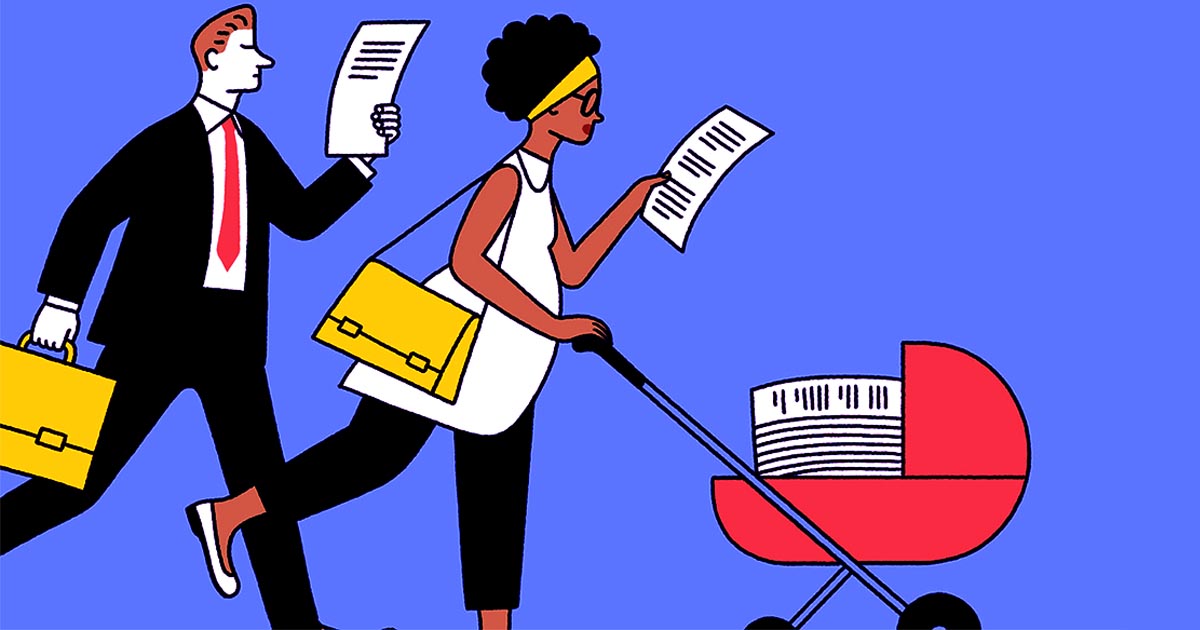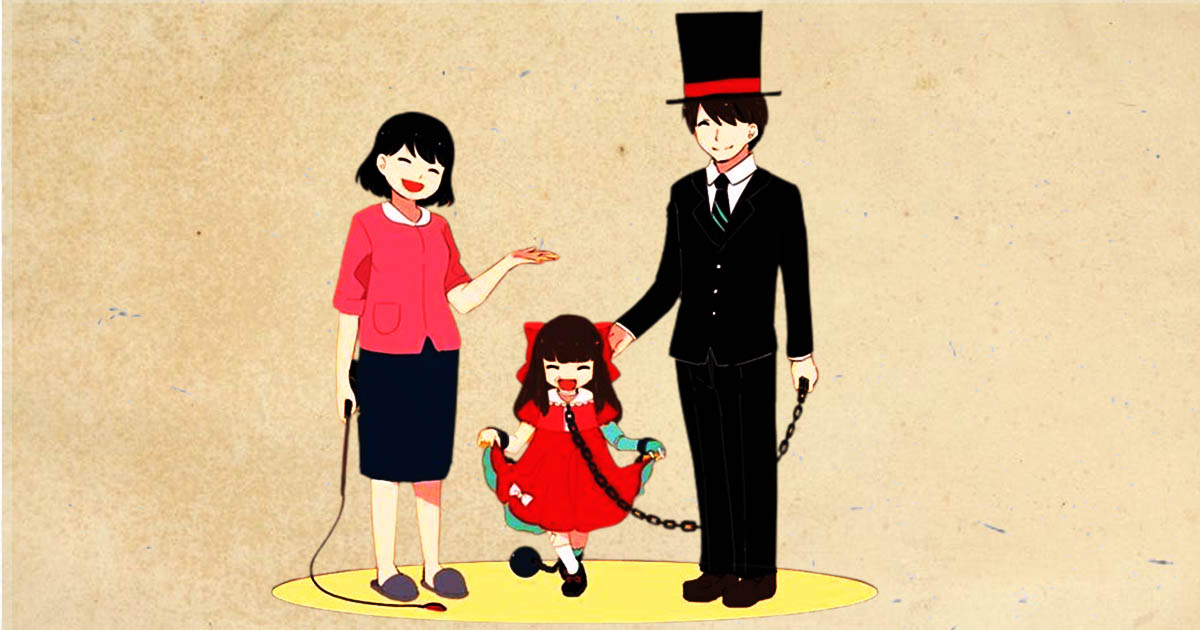With evolving family dynamics and workplace policies, understanding what is parental leave and how does it work has become increasingly vital.
In lieu of paid options, many turn to unpaid parental leaves under the Family and Medical Leave Act (FMLA), offering employees job-protected leave within the first year of a child’s birth or adoption. This policy also extends to caring for children with serious health conditions, underscoring the complexities and gaps within current parental leave frameworks.
This article delves into the intricacies of parental leave, exploring its definitions, importance, and how does parental leave work. The article will help in shedding light on its pivotal role in fostering healthy families and equitable societies.
What Is Parental Leave
Parental leave is a policy which allows workers to take time off from their jobs in order to look after a newborn baby. This could be due to birth, adoption or foster care. It has been created for baby’s parents so as to bond with them, as well as deal with the challenges of childcare without the pressures coming from work.

Employers can provide what is parental leave within their benefits packages or it can be governed by regulations. The length of time for parental leave and whether payment is made during this period vary greatly among nations, employer policies, and sometimes case-specific employee situations.
Parental leave differs from maternity leave that is intended specifically for mothers recovering from childbirth; however, these terms are occasionally used interchangeably. In some organizations and governments there exist two types of such leaves: maternity one granted exclusively to birth moms and secondly parental given either parent.
Parental Leave Vs Maternity Leave
Maternity, paternity and what is parental leave all exist to help parents to care for their children but they are very different employee entitlements. Let’s take a look at the differences of parental leave vs maternity leave:
1. Maternity leave
You can only take maternity leave if you are the biological mother. It is specifically designed to help a woman to go through the latter stages of pregnancy, after giving birth and looking after and feeding her infant.
It doesn’t matter how long a mother has been with her employer; all mothers are entitled to have maternity leave. Maternity leave is 52 weeks consisting of 39 weeks ordinary leave and 13 weeks unpaid additional leave.
However, your entitlement to receive maternity pay depends on having been continuously employed for at least twenty-six weeks by the fifteenth week before the expected date of birth.
Mothers are entitled to up to thirty-nine weeks’ statutory maternity pay. The first six weeks is paid at 90% of your salary and then $148.68 per week (current rate) thereafter although some employers pay more than this.
2. Parental leave
Parental leave can be taken by both mums and dads, regardless of whether they are biological or adoptive parents and is unpaid.
An employer cannot refuse the time off but they can prevent it if there is business need. A number of cases have arisen of what is parental leave where male employees have claimed sex discrimination because of differences in these entitlements.
Because different types of leave exist for different reasons, it makes perfect sense that there should be separate provision made for parents who has gone through the physical demands associated with childbirth. Understanding the difference between parental leave vs maternity leave is crucial when your planning to start a family.
Why Is Parental Leave Important?
There is no doubt that parental leave plays a crucial role in the family welfare and societal development.

By this policy of what is parental leave, we not only recognize the importance of parent-child relationship that originates from the early stage of a child’s life but also emphasize on fostering stable families and gender equality both at work and home.
The following are some of the reasons why is parental leave important in our society:
1. Bonding and Attachment:
Parental leave assists new parents to bond with their children; as such, they develop an emotional connection that will shape the baby’s future. This extended period enables parents to support, comfort, and create feelings of safety for their babies thus making it possible for them to grow socially and emotionally in future.
Consequently, research has shown that good quality relationships between parents/caregivers and infants play a very critical role in supporting cognitive and socio-emotional development among young children thereby emphasizing the indispensability of parental leaves.
2. Child Development:
During the first years of life, a child’s intellectual ability, as well as emotional stability would be greatly influenced by how involved his/her parents are.
Parental leave enables mothers and fathers to engage themselves into child-centered activities like breastfeeding, sensitivity while handling infants’ needs or stimulating interactions between parents/ caregivers and their preterm babies.
These experiences foster language acquisition skills, social competences, emotional self-regulation necessary for later academic achievements hence general wellbeing.
3. Health and Well-being:
Parental leave is concerned about the health of both parents as well as children in their physical and mental state. It gives mothers enough time to recover from birth, reducing postpartum problems and encouraging good health in general.
This means that what is parental leave allows for self-care and obtaining support with potential reduction in stress levels leading to better mental health outcomes. As far as small babies are concerned, responsible keepers who offer early care during infancy result into improved overall child health, reduced diseases incidences, and better developmental achievements.
4. Gender Equality:
In offering parent leave to both mother and father, organizations/governments promote gender equality in caring duties. This form of shared parental leave has allowed fathers to get involved in childcare more, countering traditional gender roles thereby creating a fairer division of labor within the family.
Fathers also benefit because it provides them opportunity to bond with their children while enabling mothers to pursue their careers without compromising work-life balance at all. In the long term, this contributes towards greater equity in workplaces and societies by ensuring more men share caregiving responsibilities equally with women throughout their lives.
5. Work-Life Balance:
For parents, what is parental leave assists in the work-life balance by giving them time to raise their children without being worried of losing jobs and financial insecurity. Understanding why is parental leave important helps you bring balance into your life.
The supportive welfare leads to more satisfaction in work, low pressure at work and additionally, employees retention benefitting both workforce and employers. In addition, such policies foster a positive organizational culture that ensures employee well-being as well as enhancing the family life of workers.
This advocacy for maternity/paternity leave, in turn, helps establish a more empathetic society where family values are cherished just like health or equilibrium that is seen as crucial for human flourishing.
How Does Parental Leave Work?
Countries, employers and the specific situations differ widely in their policies regarding parental leave.

However, here is a brief summary of how does parental leave work:
1. Eligibility:
For instance, the employees must satisfy certain requirements to be qualified for parental leave depending on such factors as length of service or employment status (full-time, part-time etc.) and may be sometimes even specific details concerning birth or adoption.
2. Notification:
Commonly, employees are needed to let their boss know earlier that they will embark on parental leave. The employer’s policy and local rules determine the notice period can differ significantly from one employer to another.
3. Duration:
Parental leave may last many different periods. In some states there is a statutory minimum for the duration of leave while in others; this depends on the company policies.
Some companies have fixed times allowed off work under what is parental leave policy while other provide flexibility over how leaves can be taken for example continuous weeks or separate days.
4. Paid or Unpaid:
The employer’s policies including country/ regional laws determine whether parental leave is paid or unpaid. In some cases, employers may offer paid vocational leave as part of benefits packages while in others employees may be allowed to go on government sponsored programmes or use accumulated annual leaves for their vacations.
5. Return to Work:
Usually, the return to work ends the period of leave that can take two to three months. However, certain companies can provide other possibilities like phased returns and part-time working hours as a way of helping workers in their re-entry into an organization.
Overall, Parental Leave is meant to assist employees’ welcome of newborns by giving them flexibility at home for them to carry out various obligations comfortably.
A Word From Mind Family
Parenthood occurrence is a big deal at Mind Family. We believe that the bond between parents and children should be strong and they should have equal child caring duties to promote gender equality in families.
In so doing, we support family friendly and health conscious laws regarding what is parental leave. This will help all children get a chance to be successful adults because their parent or guardian would be supported in his or her caregiving process.
We must continue to push for policies that give priority to family welfare while empowering parents to undertake their roles with affection, consideration, and fortitude.
Frequently Asked Questions (FAQs)
1. What is parental leave?
Parental leave allows employees to take time off to care for a new child, whether through birth, adoption, or foster care.
2. Why is parental leave important?
Parental leave is crucial for bonding with newborns, supporting child development, promoting gender equality, and facilitating work-life balance. It is also important to know the difference between parental leave vs maternity leave.
3. How does parental leave work?
Parental leave eligibility, duration, and pay vary. Employees typically notify employers in advance, with options for paid or unpaid leave, and return to work afterward.















Leave a Reply